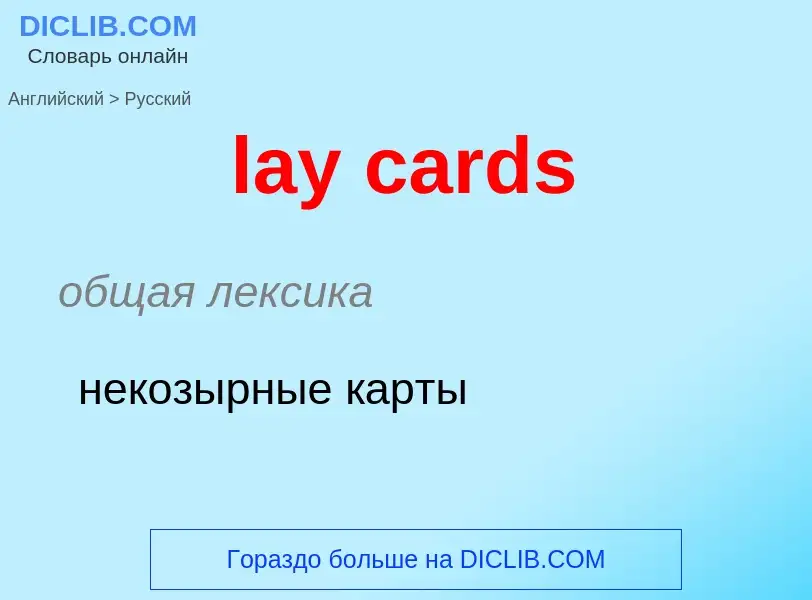Traducción y análisis de palabras por inteligencia artificial ChatGPT
En esta página puede obtener un análisis detallado de una palabra o frase, producido utilizando la mejor tecnología de inteligencia artificial hasta la fecha:
- cómo se usa la palabra
- frecuencia de uso
- se utiliza con más frecuencia en el habla oral o escrita
- opciones de traducción
- ejemplos de uso (varias frases con traducción)
- etimología
lay cards - traducción al ruso
общая лексика
некозырные карты
[,leɪ'ri:də]
общая лексика
мирянин, имеющий разрешение епископа проводить богослужение в англиканской церкви [Church of England] без совершения обрядов, связанных с таинствами
синоним
Definición
Wikipedia
Misère (French for "destitution"), misere, bettel, betl, beddl or bettler (German for "beggar"; equivalent terms in other languages include Spanish: contrabola, pobre, and Italian: devole) is a bid in various card games, and the player who bids misère undertakes to win no tricks or as few as possible, usually at no trump, in the round to be played. This does not allow sufficient variety to constitute a game in its own right, but it is the basis of such trick-avoidance games as Hearts, and provides an optional contract for most games involving an auction. The term or category may also be used for some card game of its own with the same aim, like Black Peter.
A misère bid usually indicates an extremely poor hand, hence the name. An open or lay down misère, or misère ouvert is a 500 bid where the player is so sure of losing every trick that they undertake to do so with their cards placed face-up on the table. Consequently, 'lay down misère' is Australian gambling slang for a predicted easy victory.
In Skat, the bidding can result in a null game, where the bidder wins only if they lose every trick. (Conversely, the opponents win by forcing the bidder to take a trick.) In Swedish Whist, by contrast, a null game is one in which both teams try to take the fewest tricks. This variation is known as ramsch in Skat.
In Spades, bidding for no tricks is known as bidding nil, which if successful gives the bidder a bonus.
The word is first recorded in this sense in the rules for the game "Boston" in the late 18th century. It cannot be played in 6 hand 500.



